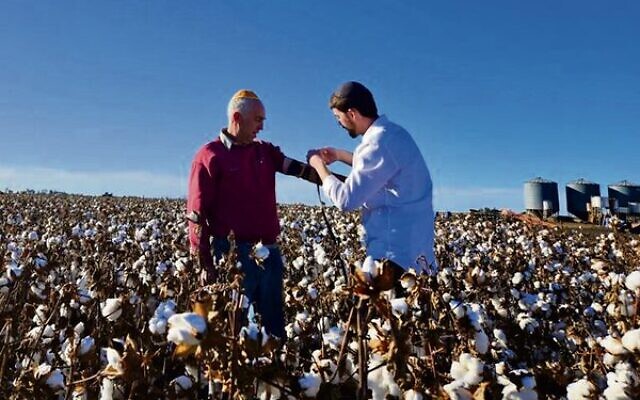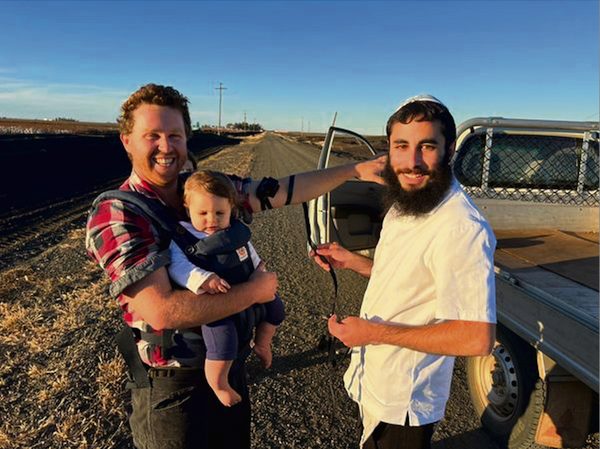Rabbis cotton on to Darling Downs
Howard and Rosa started growing grain on their farm, but eventually made the decision to turn most of it into cottonfields – a decision which has proven wise.

Australia produces and exports a lot of cotton, and almost half of it is grown in Queensland.
On the outskirts of the tiny town of Cecil Plains, in the Darling Downs region, about 80km west of Toowoomba, a large cotton farm is having a bumper growing season.
It is owned and run by a Jewish family – the Rothers – who arrived in Australia in the 1960s.
Howard and Rosa started growing grain on their farm, but eventually made the decision to turn most of it into cottonfields – a decision which has proven wise.

Always prepared to adopt new technology into their farming methods, they use water scheduling based on the latest weather forecasts, moisture probes, an agronomist and have begun to convert more fields from flood to drip irrigation.
As a result, their water usage has decreased, while their yields have increased.
On July 27, Howard and Rosa, son Jamie and his wife Caroline, and their baby son Leo, warmly welcomed two visitors that are very rarely seen in their neck of the woods – two young rabbis.
Chabad of RARA’s recently arrived roaming volunteers – cousins Rabbi Mendel (from New York) and Rabbi Yaakov Zarchi (from San Francisco) – dropped by while on a road trip to meet the family, and received a full tour of their farm.
They then were able to lay tefillin with Howard in a spectacular setting, right among an endless expanse of white, freshly grown cotton crops.
Upon their departure, the rabbis, and the Rothers, reflected that no matter where you are, or what industry you are in, you can always stay connected to your heritage.

comments